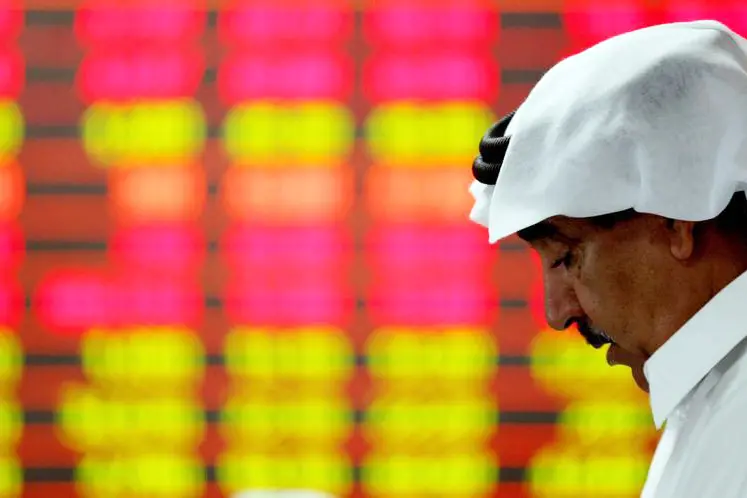PHOTO
A further downgrade could make it difficult for Bahrain to tap debt markets.
Bahrain's investment grade status could be downgraded to "junk" as early as next year as the country's fiscal situation becomes increasingly fragile, according to a recent report by Bank of America Merrill Lynch.
Fitch Ratings is set to review Bahrain's sovereign ratings on December 4 and Standard & Poor's on December 11. All three rating agencies -- Moody's, S&P and Fitch -- now rate Bahrain at BBB-. Fitch recently brought Bahrain's outlook to stable, but Moody's and S&P have maintained the outlook on negative.
"Although we think Bahrain is likely to retain its investment grade status this year, the challenging prospects for fiscal consolidation suggest a medium-term rating downgrade to junk, in our view," BAML analyst Jean-Michel Saliba said in a recent report.
"The rating agencies optimistically anticipate a rebound in oil prices in 2016-17, which, according to S&P projections, could bring the fiscal deficits to single digits."
Bahrain is in talks with banks about potentially issuing an international bond this year to raise funds to cover its budget deficit, Reuters reported in October. But if Bahrain is downgraded, several investors may not be able to buy the issue because of rules banning investments in "junk bonds".
In July, the Gulf Arab state passed a state budget for 2015 and 2016 which was based on an oil price assumption of USD 60 per barrel, and which forecast a USD 4 billion budget deficit - or 12.8% of GDP.
Global oil prices have more than halved since June 2014. The price of Brent, the international benchmark for crude oil, was trading around USD 48 a barrel on Monday.
MODEST RESTRAINT
BAML said Bahrain's fiscal deficit is likely to stand at 14.2% of gross domestic product this year, and 12.2% of GDP in 2016.
"These estimates mean Bahrain would have recorded continuous fiscal deficits since 2009. The primary balance is also likely to be in a deficit of around 11.7% of GDP and 9.1% of GDP over 2015-16, in our view," the report said.
"The modest fiscal restraint incorporated in the 2015-16 budgets suggest that the necessary material spending adjustments to restore sustainability are out of reach in this backdrop, in our view," BAML's Saliba said, noting that the burden of adjustment appears to mainly fall on capital expenditure, with current spending levels maintained.
In September, Bahrain's King Hamad bin Isa Al Khalifa issued a decree to form a smaller cabinet to focus on the country's fiscal woes, but state media did not provide any details.
The government cut subsidies on meat on October 1 as part of efforts to save money. Earlier this year, the authorities had also mooted phasing out subsidies on fuel, electricity and water, with cash payments handed out to Bahraini citizens to offset the burden on the indigenous population.
"Fiscal consolidation is complicated by the socio-political backdrop and the widening in
imbalances caused by the sharp oil price drop," Saliba said.
"Furthermore, the scope for further capital spending rationalization is becoming thinner, in our view. However, any off-budget capex disbursement from the GCC development funds mitigates this to some extent."
Capital spending is expected to fall 19.5% in 2015, from the previous year's budget, before rising to 4.5% in 2016. However, overall expenditure is expected to drop by a more modest 2.9% year-on-year in 2015 and increase by 2.2% year-on-year in 2016.
"Bahrain may have to issue additional debt if it is unable to finance its infrastructure spending from its reserves. Consequently, debt as a percentage of GDP is expected to rise to 54% in 2015 and further to 57% in 2016," according to investment bank KAMCO.
Bahrain's gross debt as a percentage of GDP has shot up from just under 30% of GDP in 2010 to 43.8% in 2014 and remains the highest in the Gulf Arab region.
Bahrain's GDP rose 3.7% in the second quarter compared to the same period last year, easily beating the 2.8% growth in the first quarter, primarily on the back of improved performances from the construction, tourism and transportation sectors.
But the country has much smaller financial and oil reserves than fellow Gulf Arab states, and political tensions between the ruling Sunni Muslim minority and the country's Shi'ite Muslim majority have also eroded investor confidence.
© The article was produced by Frontiernations.com exclusively for Zawya.com
© Zawya 2015





















